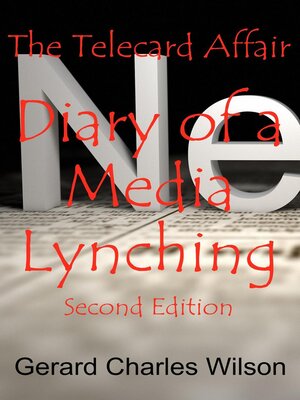
Sign up to save your library
With an OverDrive account, you can save your favorite libraries for at-a-glance information about availability. Find out more about OverDrive accounts.
Find this title in Libby, the library reading app by OverDrive.



Search for a digital library with this title
Title found at these libraries:
| Library Name | Distance |
|---|---|
| Loading... |
In October 2000, The Canberra Times broke a story about the misuse of Liberal MP Peter Reith's government funded Telecard. (Note: The Liberal Party is one of the two main conservative political parties in Australia). The card was for member's personal use to have access to a public telephone when no other telephone was available. Mobile phones at the time were not in common use.
Unauthorized calls to the tune of $50,000 had been rung up on the Workplace Relations Minister's Telecard after he had given his son, Paul Reith, the card's PIN in contravention of the Remuneration Tribunal's guidelines.
For more than two weeks the media was in uproar, smelling the blood of a hardnose conservative politician.
rial writers, political commentators, and radio talkback hosts charged Reith with the Telecard's misuse. This was another case, they said, of a rorting politician coming to grief over his all too frequent nose in the trough.
The author took a different view. In the opening chapter of The Telecard Affair: Diary of a Media Lynching Second Edition, he writes: 'While the media and the Labor Party had Peter Reith battered and strung up as a public warning, I will argue that the Telecard Affair is not about former Workplace Relations Minister, Peter Reith. It is not about MPs' rorts. It is not about the usual 'snouts in the trough.' It is essentially about the media as the sharpest corrupting influence in our social and political life. It is about those media groups who function as amoral commercial enterprises. It is about journalists who betray their calling and are seduced, or coerced, by people who rule themselves according to their materialist objectives. It is about the slow death of public justice.'
The Telecard Affair was a paradigm case of the media's irresponsible and ideologically driven misuse of their disproportionate power in the state.
The author's analysis of the media's reporting of the Telecard Affair is unrelenting and targets some well-known media figures. He has undertaken a thorough revision of the text and added further comment to the political uproar of twenty-three years ago.







